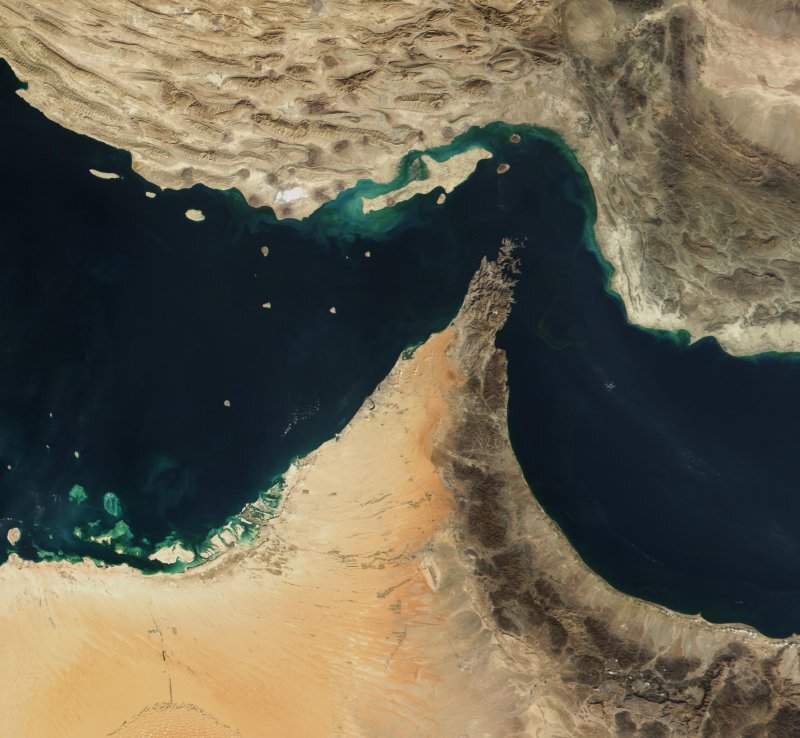Closure of Hormuz Strait: potential response to US-Israel attacks

TEHRAN – West Asia, a region perpetually teetering on the edge of conflict, has entered a new phase of heightened tension. The US-Israel axis, with its unwavering support from Western and Eastern allies, is fanning the flames of this escalation, pushing the region closer to a full-blown war.
The U.S., in its relentless pursuit of government change in Tehran, has implemented a series of crippling sanctions, and waged a campaign of diplomatic isolation, aiming to cripple Iran's economy and force it into submission. Israel, meanwhile, continues its aggressive expansionist policies in occupied Palestine, with the tacit approval and unwavering support of the U.S. and some other countries.
The recent escalation in tensions has taken a dangerous turn. The U.S. has deployed significant military forces and systems in the conflict region, engaging in provocative military maneuvers that are seen as a blatant attempt to intimidate and pressure Iran. Israel, emboldened by U.S. support, has stepped up its attacks on Iranian interests, targeting both Iranian military facilities and civilian infrastructure in neighboring Syria, as well as intensifying its invasion of Lebanon and Gaza.
Iran, however, has not remained passive in the face of this aggression. The country has repeatedly warned that it will not tolerate any attack on its sovereignty and will respond with decisive force. Iran's military capabilities, including its advanced missile technology and its well-trained and experienced armed forces, are a deterrent to any potential aggression.
Iran's efforts to prevent a full-blown war in West Asia have so far been primarily diplomatic. The tireless diplomatic efforts of high-ranking officials within the Iranian Ministry of Foreign Affairs, including the Minister himself, are seen as a final attempt to de-escalate tensions through diplomacy before resorting to more militaristic measures. However, the limits of diplomacy appear to be reaching their threshold, making a shift in approach inevitable.
In the absence of “an adult in the room” on the opposing side of the conflict, Iran is now eyeing other options on the table –not all of which involve military action.
The current situation has pushed Iran to consider more drastic measures. Amidst disturbing reports of the continued Israeli/American invasion of Lebanon and Gaza, KPLER, a data and analytics firm specializing in global trade intelligence, particularly in the energy and shipping markets, published a graph outlining changes in Iran's oil exports from its southern refineries.
According to the source, Iran has begun exporting oil from its facilities in “Jask”, located on the shores of the Sea of Oman, outside the Persian Gulf region – a development that has largely gone unnoticed. This new strategy suggests that Iran is preparing for a potential closure of the Strait of Hormuz, emphasizing alternative facilities to maintain its oil exports in such a scenario.
In other words, the closure of the Strait of Hormuz, a crucial waterway for global oil transportation, seems to have been presented as a possible response to any U.S.-backed Israeli attack. This warning is not a hollow threat, but a calculated response to the escalating tensions and an attempt to deter further aggression.
The Strait of Hormuz, a narrow channel connecting the Persian Gulf to the Indian Ocean, is a vital artery for global oil trade. Nearly 30% of the world's oil (20 million barrels a day) passes through this strategic chokepoint, making it a critical point of leverage for any country that controls it. Iran, with its strategic location overlooking the Strait, holds considerable power over this vital waterway.
The closure of the Strait of Hormuz would have significant consequences for the global economy. Oil prices would skyrocket, leading to a global economic downturn and widespread instability. The energy crisis would further exacerbate political tensions and create a volatile environment for international relations.
However, Iran's decision to contemplate such drastic action is not rooted in a desire to disrupt global trade. Instead, it's a powerful statement, a message of defiance against the relentless pressure and aggression it faces. Closing the Strait would be a way for Iran to hold responsible all those who are complicit in the ongoing Israeli atrocities against Palestinian, Lebanese, Yemeni, and Syrian civilians, atrocities that are facilitated and enabled by the unwavering support of the U.S. and some other allies.
The potential consequences of such a move are far-reaching. The global economy would suffer, with oil prices soaring and economies worldwide feeling the effects of a disruption to energy supplies, a scenario reminiscent of the 1970s energy crisis or even far beyond that. The geopolitical landscape would shift dramatically, with international relations strained and tensions escalating further.
Whether Iran chooses to follow through with this drastic measure remains uncertain. However, the very fact that it is being considered as a viable option speaks volumes about the escalating crisis and the devastating measures being contemplated to address it. The international community must act now to de-escalate the situation and find a diplomatic solution before the region is plunged into an all-out conflict.
A diplomatic solution, however, seems increasingly elusive. The U.S., driven by its own geopolitical ambitions and its unwavering loyalty to Israel, shows little inclination to de-escalate the situation. Instead, it continues to double down on its aggressive policies, further escalating tensions and pushing the region closer to the brink.
The Strait of Hormuz, once a vital artery for global trade, has become a powder keg, a symbol of the escalating tensions and the dangerous path the region is treading. It remains to be seen whether the international community will be able to step back from the precipice and find a peaceful resolution before the flames of war engulf West Asia.
